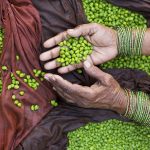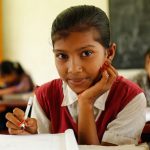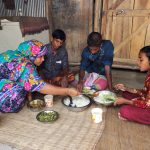In 1998, Bangladesh was hit by "the flood of the century." Policy makers sought ways to make food more readily available in the short term and to better manage public food grain stocks in the future.Responding to the government’s need for timely, practical policy analysis in the midst of the floods, IFPRI staff members and collaborators from the Food Planning and Monitoring Unit of the Ministry of Food and Disaster Management produced 53 policy advisory memos from 1998 to 2001. These memos offered ready input into current policy decisions needed to respond to the impacts of the flooding.
Improving Public Food Distribution in Bangladesh
In response to natural disasters and crop failures that caused food shortages in the 1990s and 2000s, the World Food Programme (WFP) and other donors supplied food for the Government of Bangladesh to distribute. However, with growing concerns that food aid was not reaching the most vulnerable, WFP called on IFPRI in 2003 to examine the source of food aid "leakages."
Leveraging Agriculture for Nutrition in South Asia (LANSA)
Agriculture is the primary livelihood for nearly half the population of South Asia, and yet its potential to reduce undernutrition remains unrealized. One-third of children in South Asia are stunted. Despite increasing political will to improve nutrition, evidence has been sparse on how agriculture and agrifood systems can be better designed to improve nutrition. In 2012, a research consortium called Leveraging Agriculture for Nutrition in South Asia (LANSA) was formed among the Collective on Social Science Research in Pakistan, BRAC, the Leverhulme Centre for Integrated Research on Agriculture and Health (LCIRAH), the Institute of Development Studies (IDS), and IFPRI, under the leadership of the M.S. Swaminathan Research Foundation and with support from UK's Department for International Development (DFID). The aim was to generate evidence to strengthen the nutrition sensitivity of agrifood systems in Afghanistan, Bangladesh, India, and Pakistan.
Cereal Systems Initiative for South Asia (CSISA)
IFPRI leads the policy research component of the Cereal Systems Initiative for South Asia (CSISA), a regional effort designed to raise agricultural productivity and enhance farmers’ incomes. Between 2010 and 2015, more than one million farmers in Bangladesh benefited from higher yields because of stress-tolerant rice varieties distributed by CSISA.
Female Secondary School Assistance in Bangladesh
In 2004, IFPRI researchers assessed the impacts of the Female Secondary School Assistance Project (FSSAP). The project was enormously successful. In fact, girls significantly overtook boys in secondary school enrollment—a rare phenomenon in a developing country. Not only was the program effective at giving many girls from poor families the financial support they needed, but it also enhanced awareness of the value of female education among girl students.
Transforming Nutrition in Bangladesh
MOTIVATION Undernutrition causes the deaths of millions of young children every year. For children who survive, it disrupts their schooling and means they are likely to remain poor as adults. The human and economic costs are enormous. Transform Nutrition is a six-year research program led by IFPRI with support from DFID. The Transform Nutrition consortium, >> Read more
- 1
- 2
- 3
- …
- 6
- Next Page »



